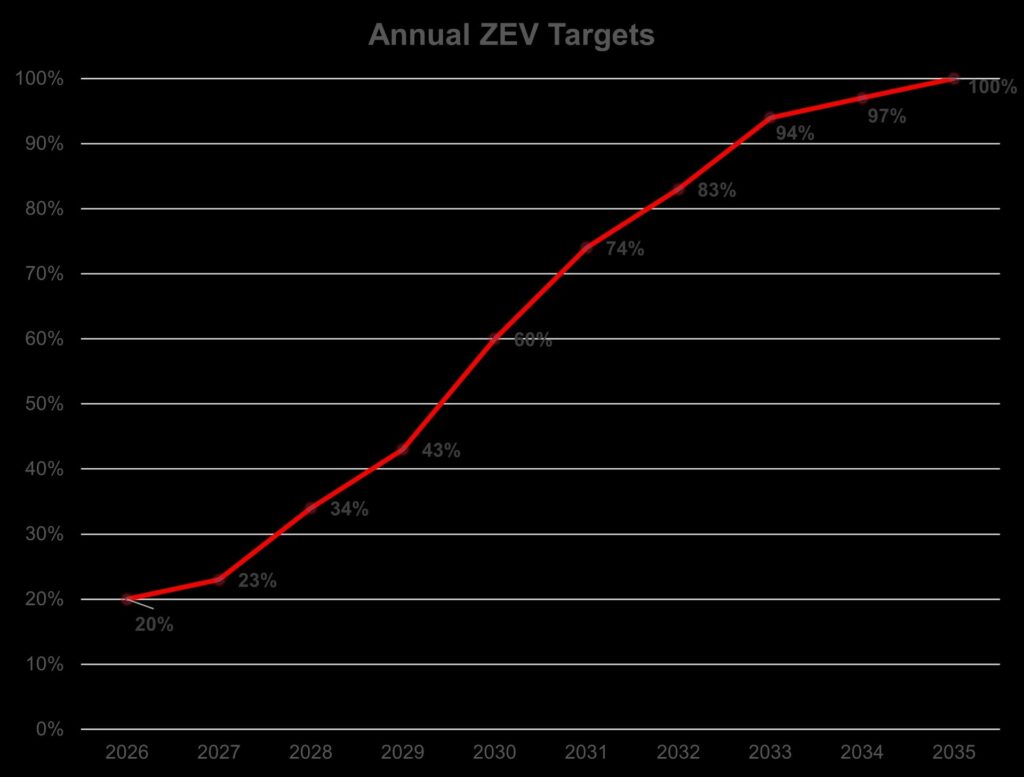Wed 20 December 2023:
The Electric Vehicle Availability Standard (EVAS) has been officially adopted in Canada, requiring automakers to fulfill yearly zero-emission vehicle (ZEV) sales objectives.
The targets will take effect for the 2026 model year and will mandate that 20% of new light-duty vehicles (passenger cars, light trucks, and SUVs) be ZEVs. This figure will rise year after year until it reaches 100 percent in 2035.

The Canadian government said the rules echo those found in California and will provide automakers with a “ramp-up period of more than a decade.” Officials went on to note gas- and diesel-powered vehicles can still be driven after 2035, and can be bought or sold used.
One in eight new vehicles sold nationwide is electric or plug-in hybrid, according to Statistics Canada’s records of registrations. In provinces that already have regulations requiring dealers to sell a certain proportion of EVs, sales are far higher. One in five new cars are electric in Quebec. In B.C, EVs make up nearly a quarter of all new car sales.
The new regulations will require zero emissions vehicles (ZEVs), which include battery electric, hydrogen and plug-in electric vehicles, to make up 20 per cent of all new car sales in 2026, 60 per cent in 2030 and 100 per cent in 2035, the official said.
SOURCE: INDEPENDENT PRESS AND NEWS AGENCIES
______________________________________________________________
FOLLOW INDEPENDENT PRESS:
WhatsApp CHANNEL
https://whatsapp.com/channel/0029VaAtNxX8fewmiFmN7N22
![]()
TWITTER (CLICK HERE)
https://twitter.com/IpIndependent
FACEBOOK (CLICK HERE)
https://web.facebook.com/ipindependent
Think your friends would be interested? Share this story!





